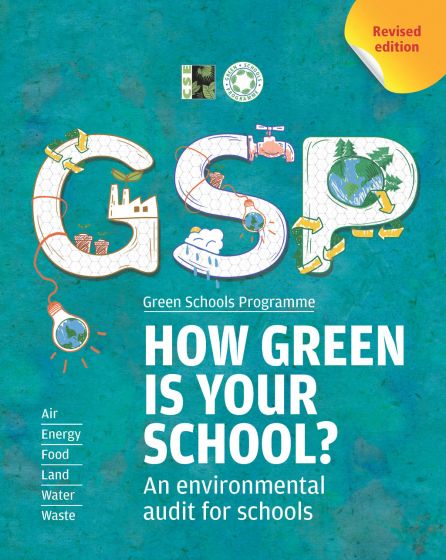
The Centre for Science and Environment (CSE) has picked 106 schools from among the 707 schools as the greenest schools in India for the year 2022-2023. This is part of CSE’s annual Green School Program. Of these, 19 schools received the topmost Annual Green School Awards for their exemplary initiatives in making their campuses environment-friendly and eco-conscious students.
Awards were also conferred on the most proactive teachers, the “best state” and “best district.” CSE director general Sunita Narain and executive director Jagdeep Gupta handed out the awards to the winners.
The awards are based on an exhaustive and rigorous annual audit of resource management and environment-friendly practices within the school campuses. The audit is conducted by the schools themselves with CSE’s help.
Souparno Banerjee, senior director, environment education, CSE said the unique aspect of this program is that it offers the opportunity for schools to measure their progress year on year so that they can improve their ranking.”
Over seven hundred schools from 29 states and Union territories vied for the honors; 19 of these received the top awards, and 106 were tagged as ‘green’. 436 government schools, 55 government-aided schools and 216 private schools participated in the audit.
Each school which undertook the audit, was assessed by the Green Schools Program on its resource consumption practices in six areas – water management, solid waste management, energy efficiency, air pollution control, land and biodiversity management, and food systems.
List of THE 2022-23 AWARDS
Best State and District: Himachal Pradesh bagged the award for the Best State with the highest audit registrations and report submissions. 114 schools from the state submitted their audit reports – nine were rated ‘green’. Solan in Himachal Pradesh bagged the Best District Award with 61 submissions and six schools rated ‘green’.
Changemaker Awards: These were schools that have monitored their resource consumption and improved them. The two awardees in this category:
- Global Public School, Ernakulam, Kerala
- Noyes Mat. Hr. Sec. School, Madurai, Tamil Nadu
Sterling Schools Awards: Schools rated ‘green’ for five consecutive years:
- Motilal Nehru School of Sports, Rai, Sonipat, Haryana
- Sachdeva Global School, Southwest Delhi, New Delhi
- Salwan Public School, Ghaziabad, Uttar Pradesh
- Ashok Memorial Public School, Faridabad, Haryana
- Bal Bharati Public School, Noida, Gautam Buddh Nagar, Uttar Pradesh
- Kendriya Vidyalaya WCL, New Majri, Chandrapur, Maharashtra
- East Point School, New Delhi
- Indirapuram Public School, Pratap Vihar, Ghaziabad, Uttar Pradesh
- Bal Bharati Public School, IMT Manesar, Gurugram, Haryana
- St Edmund’s School, Jaipur, Rajasthan
- Mahindra World School, Kanchipuram, Tamil Nadu
Best Newcomer: Schools that have recently registered to be a part of the program and have demonstrated considerable potential in managing their natural resources.
- Cambridge School, Indirapuram, Ghaziabad, Uttar Pradesh
Best in Section: Schools that have performed exceptionally in specific sections.
- GSP Waste Warrior Award: Christ Academy CBSE School, Bengaluru, Karnataka
- GSP Land Manager Award: Government Senior Secondary School Himgiri, Chamba, Himachal Pradesh
- GSP Good Food Award: Shiv Nadar School, Gautam Buddh Nagar, Uttar Pradesh
- GSP Air Action Award: Subodh Public School Airport, Jaipur, Rajasthan
- GSP Energy Manager Award: Dr Rajendra Prasad Kendriya Vidyalaya, Central Delhi, New Delhi
What it means to be a Green School?
A ‘green’ school may include, but is not limited, to the following:
- A window to floor ratio (WFR) of more than 15 per cent.
- Majority of the population using sustainable and non-polluting modes of transport (public transport, e-rickshaws, cycling, walking).
- Maximum use of energy-efficient lighting to conserve energy and use of alternative sources of energy – the GSP Audit encourages schools to minimize the use of conventional lights without compromising over sufficient lighting for students.
- Maintain a high green cover inside and around the school campus along with greater biodiversity by planting native species of plants.
- Serve only cooked meals (avoid packaged foods) to ensure healthy food consumption.
- Harvest rainwater and treat wastewater.
- Segregate waste at source efficiently and dispose of responsibly — recycling of at least 90 per cent of the waste is recommended
- Wet waste composted; waste should not be burned.







